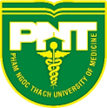Understanding Health Literacy
Health literacy refers to an individual’s ability to obtain, understand, and use health information to make informed decisions about their health. It goes beyond basic reading and writing skills and encompasses a person’s capacity to navigate the healthcare system, comprehend medical jargon, and critically evaluate health-related information.
Low health literacy is a significant public health issue that can have serious consequences. It can lead to poor health outcomes, increased healthcare costs, and limited access to appropriate care. In fact, studies have shown that individuals with low health literacy are more likely to have chronic conditions, experience medication errors, and have higher rates of hospitalization.
The Importance of Health Promotion
Health promotion plays a crucial role in addressing the challenges posed by low health literacy. It focuses on empowering individuals and communities to take control of their health by providing them with the knowledge and skills necessary to make informed decisions.
Health promotion initiatives aim to improve health literacy by promoting health education, communication, and advocacy. By enhancing individuals’ understanding of health information, they can make better choices about their lifestyle, preventive measures, and treatment options.
Strategies for Enhancing Health Literacy
Effective health promotion strategies can help individuals improve their health literacy and make informed decisions about their well-being. Here are some key approaches:
- Clear Communication: Health information should be presented in a clear and concise manner, using plain language that is easily understood by the target audience. Avoid complex medical terminology and jargon, and use visual aids whenever possible to enhance comprehension.
- Accessible Information: Ensure that health information is readily accessible to all individuals, regardless of their literacy level or language proficiency. This can be achieved by providing materials in multiple formats, such as audio, video, and easy-to-read brochures.
- Health Education: Promote health education programs that focus on building essential skills, such as reading labels, understanding medication instructions, and interpreting health-related statistics. These programs can be conducted in schools, community centers, and healthcare settings.
- Collaboration: Foster collaboration between healthcare providers, community organizations, and policymakers to develop comprehensive health literacy initiatives. By working together, they can create a supportive environment that promotes health literacy at all levels.
- Technology: Utilize technology to enhance health literacy. Online resources, mobile applications, and interactive tools can provide individuals with easy access to accurate and reliable health information.
The Benefits of Improving Health Literacy
Improving health literacy has numerous benefits for individuals, communities, and healthcare systems. When individuals are equipped with the necessary knowledge and skills, they are more likely to:
- Make informed decisions about their health and healthcare options
- Engage in preventive measures, such as vaccinations and screenings
- Adhere to medication regimens and treatment plans
- Navigate the healthcare system more effectively
- Advocate for their own health needs
- Experience improved health outcomes
Furthermore, improving health literacy can contribute to reducing healthcare costs by minimizing unnecessary hospitalizations, emergency room visits, and complications related to chronic diseases.
Conclusion
Health literacy plays a vital role in promoting individual and community health. By enhancing health literacy, we can empower individuals to make informed decisions about their well-being, leading to improved health outcomes and reduced healthcare costs. Through effective health promotion strategies, we can bridge the gap between health information and understanding, ensuring that everyone has access to the knowledge they need to live healthier lives.
